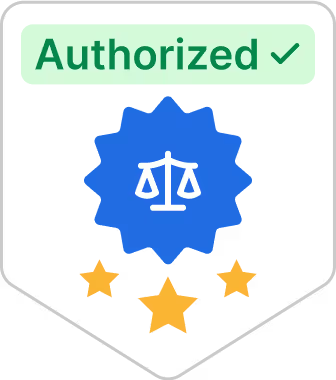Can an LLC be a nonprofit?

What does nonprofit mean? Nonprofits are generally established as corporations. This is the model that the IRS wants to see when applying for tax exemption, which is a critical feature for nonprofits. But can a nonprofit organization be an LLC?
Short answer: Yes, but in most cases, it’s not the best choice.
There are cases where it makes sense for an LLC to be formed as a subsidiary of an established nonprofit corporation or multiple organizations, but these are the exception rather than the rule.
What is an LLC?
A limited liability company (LLC) is a business that is registered, governed, and recognized at the state level. It’s generally used by partnerships and small groups and is characterized by:
- Pass-through taxation – LLCs can choose to be taxed like a partnership, avoiding the double taxation inherent to corporate taxation.
- Simplicity – LLCs have much more relaxed rules around their registration and require less formal structures and processes than either nonprofit or for profit corporations.
- Legal protection – LLCs have a unique legal entity that offers its business owner protection against debt and liability that could otherwise put family homes and assets at risk.
What is a nonprofit LLC?
Every state has its own regulations surrounding LLCs. Most do not have a nonprofit LLC designation available, however:
- Kentucky, Minnesota, North Dakota, and Tennessee allow for nonprofit LLCs
- Texas is another, although they simply call it an “LLC with a nonprofit purpose”
- Many other states use the term “nonprofit liability companies” (NLCs)
Just as with a nonprofit corporation, there are state-specific requirements and processes related to obtaining a nonprofit EIN number and a tax exempt status for state and local income tax, property tax, and sales tax.
At the federal level, it’s not strictly the type of entity that is recognized, but the method of taxation. Traditional LLCs, as a pass-through, disregarded entity.
Wondering what is the difference between nonprofit and not for profit? Well, a nonprofit organization is being operated as a normal business with a goal to earn a profit without supporting any of the members. Meanwhile, a not for profit organization does not have a goal of earning revenue.
Does the IRS grant tax exempt status to nonprofit LLCs?
The IRS does recognize nonprofit LLCs, but there are some very strict guidelines. Obtaining tax exempt status federally as a nonprofit LLC formed solely by nonprofit corporations is the only situation in which a nonprofit LLC is federally registered.
As opposed to having members who are individual people, a nonprofit LLC seeking federal tax exempt status can only have one or more tax exempt nonprofit organizations as members.
In addition to this membership limit, nonprofit LLCs must document and meet 12 fairly burdensome requirements to be granted federal tax exempt status, including:
- State law adherence – All documents and activities must be consistent with state LLC laws.
- Dissolution plan – A plan for the dissolution of the LLC that includes maintaining charitable use of its assets
- Contingency plan – A contingency plan within specific guidelines for what happens if any members cease to be section 501(c)(3) organizations or governmental units.
When LLCs are useful to nonprofits
A nonprofit organization might set up an LLC in order to add a layer of separation for legal or liability protection. It makes sense for a nonprofit to establish an LLC for:
- High-risk programs – Running programs that, while they are part of the core mission, entail greater risk of liability, such as wilderness outings or at-risk youth programs.
- High-risk assets – Investing in real estate with environmental risks or expensive transportation or other equipment.
- Unrelated business activity – Operating business ventures such as merchandising that provide revenue but could compromise tax exempt status.
When LLCs are useful to multiple organizations
An LLC can also be a layer to further protect a nonprofit’s carefully regulated tax exempt status during a joint venture with other organizations. Multiple organizations can establish an LLC in order to:
- Partner with other nonprofits – When working together with other nonprofits, an LLC can ensure that your organization is not harmed by other members’ actions and legal status. Without this protection, your tax exempt status could be at risk.
- Collaborate with for-profit companies – The LLC itself can either be tax exempt (if all member organizations are nonprofits) or taxable (if members include both nonprofit and for-profit entities).
A nonprofit entity can be a member of a traditional LLC, but the LLC can only be categorized as a nonprofit LLC if all other members are also tax exempt nonprofits.
Ready to launch a nonprofit?
So, can an LLC be a nonprofit? The more flexible structure and simpler reporting requirements of an LLC may make it seem like a great choice for a nonprofit startup.
But the reality is that, because it’s a nonstandard approach and a pass-through entity designation, there are a lot of limitations and hoops to jump through to gain tax-exempt status at both the federal and state levels.
So, how to start a nonprofit organization? To avoid having to set up a nonprofit in person, simply fill out this form to apply for a nonprofit online right now.
Sources:
- Anderson Advisors. The Best Entity for Forming a Nonprofit. https://andersonadvisors.com/can-llc-be-nonprofit-best-entity-forming-nonprofit/
- Legal Zoom. Structuring Your Nonprofit: the Differences Between Incorporation and LLC. https://www.legalzoom.com/articles/structuring-your-nonprofit-the-differences-between-incorporation-and-llc
- UpCounsel. Can a Non Profit Be an LLC: Everything You Need to Know. https://www.upcounsel.com/can-a-non-profit-be-an-llc
- Texas Secretary of State. Formation of Texas Entities FAQs. https://www.sos.state.tx.us/corp/formationfaqs.shtml#NL
- Small Business Chron. What State Allows the Formation of a Not-for-Profit LLC? https://smallbusiness.chron.com/state-allows-formation-notforprofit-llc-65770.html
- Legal Zoom. Can An LLC Be A Nonprofit? https://www.legalzoom.com/articles/can-an-llc-be-a-nonprofit
- IRS. LIMITED LIABILITY COMPANIES AS EXEMPT ORGANIZATIONS UPDATE. https://www.irs.gov/pub/irs-tege/eotopicb01.pdf
- Neo Law Group. Nonprofit Limited Liability Company. https://nonprofitlawblog.com/nonprofit-limited-liability-company-2/
- IncNow. Can I Form a Non-Profit LLC, 501c3? https://www.incnow.com/blog/2022/05/23/can-i-form-a-non-profit-llc-501c3/























